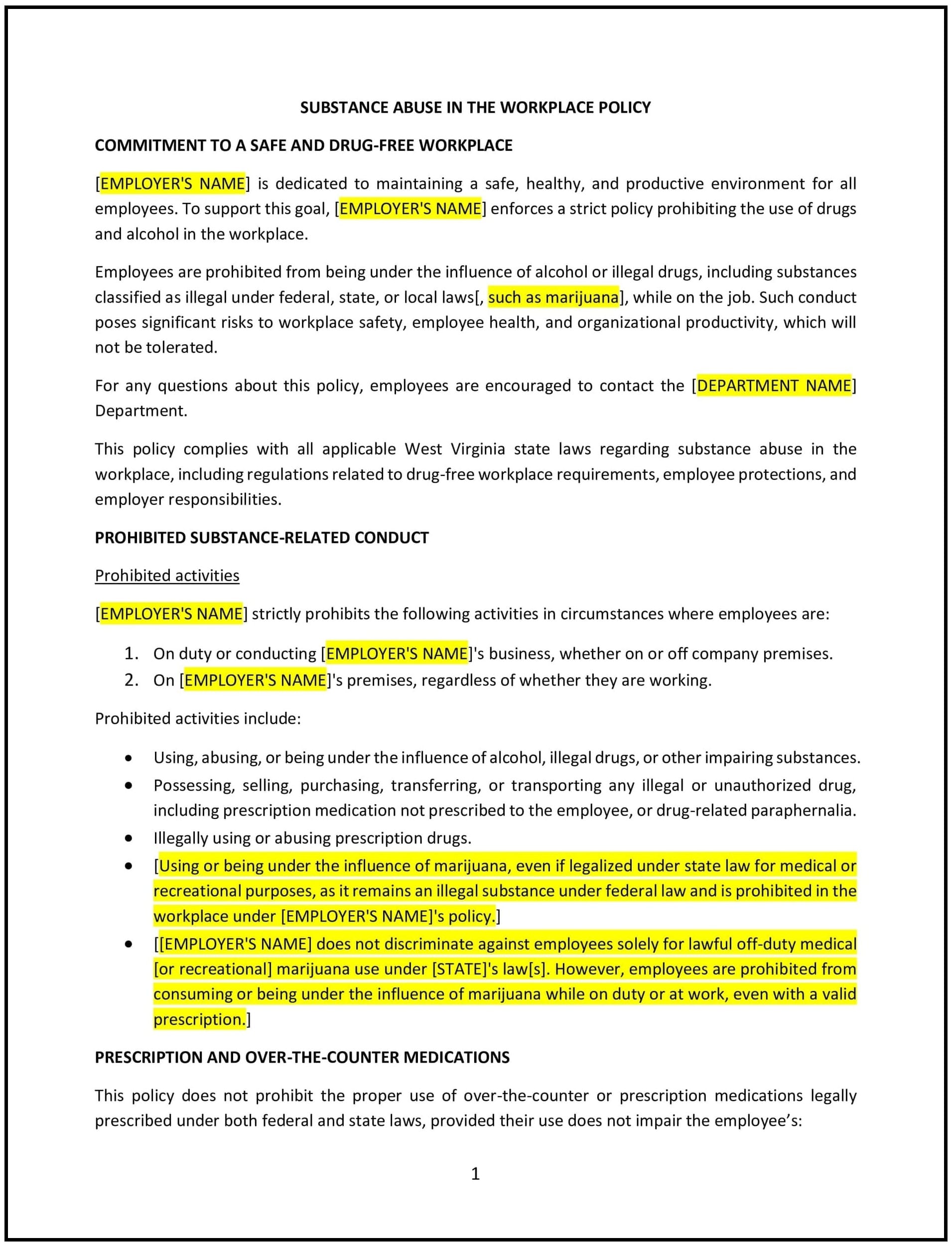Substance abuse in the workplace policy (West Virginia): Free template
Got contracts to review? While you're here for policies, let Cobrief make contract review effortless—start your free review now.

Customize this template for free
Substance abuse in the workplace policy (West Virginia)
In West Virginia, a substance abuse in the workplace policy establishes guidelines for maintaining a safe, productive, and drug-free work environment. This policy outlines expectations for employees regarding the use of drugs and alcohol, testing procedures, and resources for addressing substance abuse issues. It promotes compliance with state and federal laws while supporting the well-being of employees.
The policy defines prohibited behaviors, testing protocols, and consequences for policy violations, as well as providing resources for rehabilitation and support.
How to use this substance abuse in the workplace policy (West Virginia)
- Define prohibited behaviors: Clearly state that the use, possession, sale, or distribution of illegal drugs or alcohol in the workplace is prohibited.
- Outline testing procedures: Include information about pre-employment, random, post-accident, and reasonable suspicion drug and alcohol testing.
- Provide resources for support: Offer information about Employee Assistance Programs (EAPs), counseling, or rehabilitation programs for employees seeking help.
- Address consequences: Detail the disciplinary actions for policy violations, which may include termination, suspension, or referral to treatment programs.
- Support compliance: Align the policy with West Virginia labor laws, the Drug-Free Workplace Act, and other applicable federal regulations.
Benefits of using a substance abuse in the workplace policy (West Virginia)
- Enhances workplace safety: Reduces the risk of accidents or injuries caused by substance use.
- Promotes compliance: Aligns with West Virginia laws and federal regulations governing drug-free workplaces.
- Supports employee well-being: Encourages employees to seek help for substance abuse issues through available resources.
- Protects productivity: Minimizes disruptions caused by substance-related incidents in the workplace.
- Reduces liability: Establishes clear guidelines to protect the organization from legal and reputational risks.
Tips for using a substance abuse in the workplace policy (West Virginia)
- Communicate the policy: Share the policy with employees during onboarding and provide periodic reminders to reinforce its importance.
- Train supervisors: Equip managers with the skills to identify signs of substance abuse and handle situations in accordance with the policy.
- Ensure confidentiality: Handle all testing, reporting, and treatment-related information confidentially to protect employee privacy.
- Document incidents: Maintain detailed records of any policy violations, tests, and disciplinary actions to ensure transparency and accountability.
- Review periodically: Update the policy to reflect changes in West Virginia laws, federal regulations, or workplace practices.